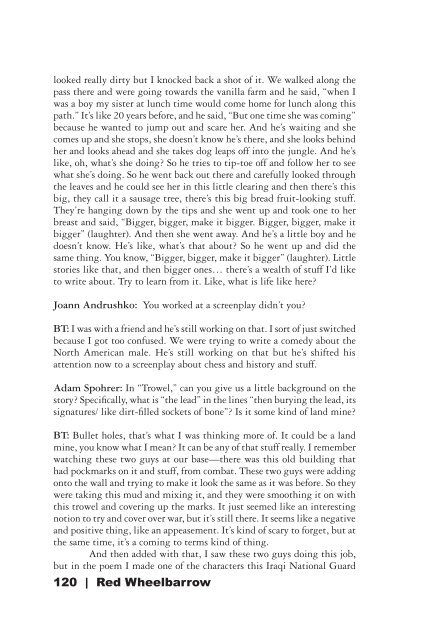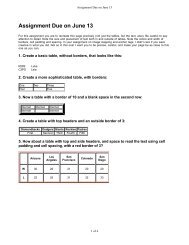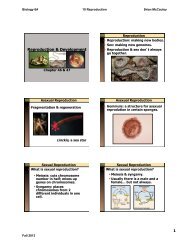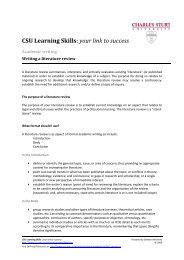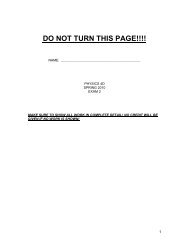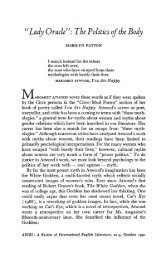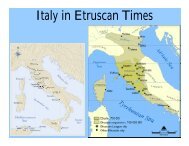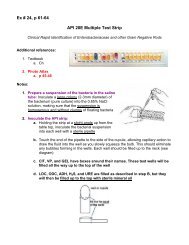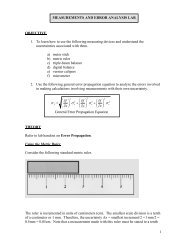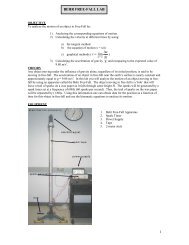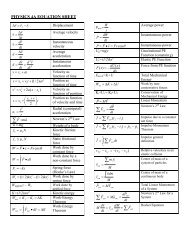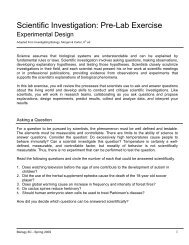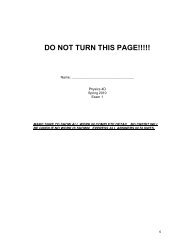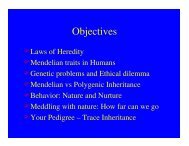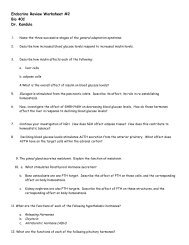Red Wheelbarrow 2008 text FINAL REVISED.indd - De Anza College
Red Wheelbarrow 2008 text FINAL REVISED.indd - De Anza College
Red Wheelbarrow 2008 text FINAL REVISED.indd - De Anza College
Create successful ePaper yourself
Turn your PDF publications into a flip-book with our unique Google optimized e-Paper software.
looked really dirty but I knocked back a shot of it. We walked along the<br />
pass there and were going towards the vanilla farm and he said, “when I<br />
was a boy my sister at lunch time would come home for lunch along this<br />
path.” It’s like 20 years before, and he said, “But one time she was coming”<br />
because he wanted to jump out and scare her. And he’s waiting and she<br />
comes up and she stops, she doesn’t know he’s there, and she looks behind<br />
her and looks ahead and she takes dog leaps off into the jungle. And he’s<br />
like, oh, what’s she doing? So he tries to tip-toe off and follow her to see<br />
what she’s doing. So he went back out there and carefully looked through<br />
the leaves and he could see her in this little clearing and then there’s this<br />
big, they call it a sausage tree, there’s this big bread fruit-looking stuff.<br />
They’re hanging down by the tips and she went up and took one to her<br />
breast and said, “Bigger, bigger, make it bigger. Bigger, bigger, make it<br />
bigger” (laughter). And then she went away. And he’s a little boy and he<br />
doesn’t know. He’s like, what’s that about? So he went up and did the<br />
same thing. You know, “Bigger, bigger, make it bigger” (laughter). Little<br />
stories like that, and then bigger ones… there’s a wealth of stuff I’d like<br />
to write about. Try to learn from it. Like, what is life like here?<br />
Joann Andrushko: You worked at a screenplay didn’t you?<br />
BT: I was with a friend and he’s still working on that. I sort of just switched<br />
because I got too confused. We were trying to write a comedy about the<br />
North American male. He’s still working on that but he’s shifted his<br />
attention now to a screenplay about chess and history and stuff.<br />
Adam Spohrer: In “Trowel,” can you give us a little background on the<br />
story? Specifically, what is “the lead” in the lines “then burying the lead, its<br />
signatures/ like dirt-filled sockets of bone”? Is it some kind of land mine?<br />
BT: Bullet holes, that’s what I was thinking more of. It could be a land<br />
mine, you know what I mean? It can be any of that stuff really. I remember<br />
watching these two guys at our base—there was this old building that<br />
had pockmarks on it and stuff, from combat. These two guys were adding<br />
onto the wall and trying to make it look the same as it was before. So they<br />
were taking this mud and mixing it, and they were smoothing it on with<br />
this trowel and covering up the marks. It just seemed like an interesting<br />
notion to try and cover over war, but it’s still there. It seems like a negative<br />
and positive thing, like an appeasement. It’s kind of scary to forget, but at<br />
the same time, it’s a coming to terms kind of thing.<br />
And then added with that, I saw these two guys doing this job,<br />
but in the poem I made one of the characters this Iraqi National Guard<br />
120 | <strong>Red</strong> <strong>Wheelbarrow</strong>


